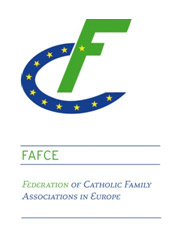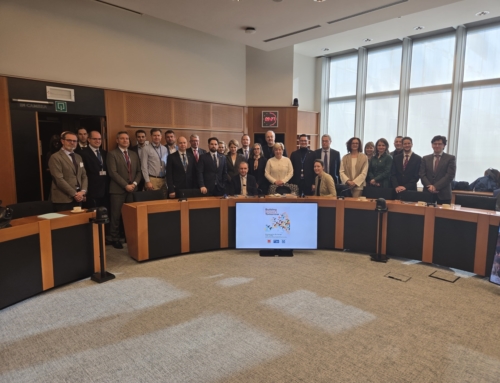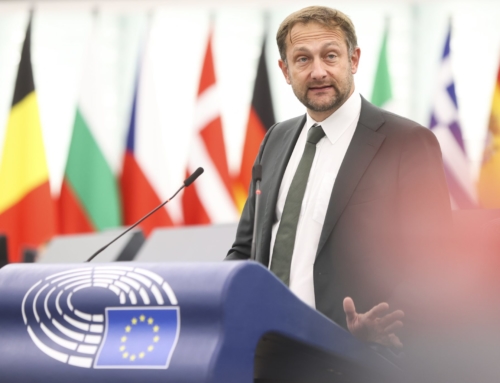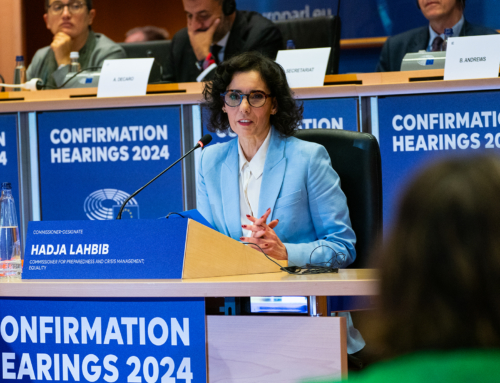FAFCE Board Resolution
Family is the heart of the post-pandemic recovery
Online Board Meeting, 10 November 2020
The future is only possible with children, and the post-pandemic recovery will only be possible with the family. The Federation of Catholic Family Associations in Europe calls all European Union Member States to urgently include demographic and family policies in the EU recovery plan to ensure a sustainable future for Europe after the pandemic.
Considering that families have been in the front line of the pandemic and have demonstrated their crucial function of basic natural cell of society;
Considering the significant unpaid work carried out by families in these times of pandemic;
Considering that families suffer from greater economic difficulties and face numerous obstacles while ensuring their role;
Recalling FAFCE’s Board Resolution “for a Demographic Spring” (Vienna, 13 April 2018), asking to “consider that a true family policy is not just a mere social support, but represents a forward-looking policy for the common good for an ageing society”;
Recalling its Board Resolution on “Rebuilding Europe Restarting from the Family” (Malta, 15 May 2019), inviting all European families to “be protagonists of innovative family policies, considering the family as the generative nucleus which gives life to all sectors of the society, in relation to education, economy and employment”;
Recalling its Board Resolution on a “Call for a European Natality Pact” (Brussels, 9 October 2019), calling governments “to improve their family and demographic policies, which must be considered as social and economic investments for the future of Europe”;
Recalling its Board Resolution on Families are the front line in the pandemic (Online Board Meeting, 6 May 2020) inviting all European decision-makers to “effectively invest in the family and in its human and social capital to move away from the crisis and creating a new starting point for Europe”;
Recalling the European Commission Report on the Impact of the Demographic Change (17 June 2020), which acknowledges that “over the last weeks and months, the link between demographic structures and the impact and recovery potential has been sharply and often painfully exposed” and that “the need for solidarity between generations is one of the driving forces of Europe’s recovery”.
Recalling its Open Letter to the Members of the European Council on “Sustainable development only possible through demographic and family policies” (30 July 2020) asking “for the pragmatism of those who know that our Europe today needs future generations, more than ever before; and this means, concretely, demographic policies”.
The Board of FAFCE calls the EU and all EU Member States, in the respect of the subsidiarity principle, to put demographic and family policies at the centre of the European Union Recovery Plan, which will:
- Provide support to families with children as a top priority in the implementation of the Next Generation EU: emergency policies are crucial to prevent the impoverishment of families and constituting the fair recognition of their commitment during the pandemic;
- Adopt a new paradigm to put the family and family associations at the centre of long-term policies in Europe: family policies should not be considered as a cost but rather as an investment in the formation of human capital for the future of Europe;
- Include the demographic transition in the “twin transition” of the green and digital transitions and promote a triple transition for a sustainable Europe: no sustainable development being possible without a next generation to uphold it, namely children;
- Implement urgent pro-family policies targeting the reversal of the demographic birth trends as families face uncertainties and financial hardships. Fiscal incentives need to be in place to support pregnant women, and families with children. Support must be such that the likelihood of abortion becomes unthinkable.
- Recognise and support family associations, who create effective activities of solidarity, education and training: they improve and stabilise interpersonal relationships within couples, families and for every person. These networks interpret and represent families, and on the basis of real needs can provide innovative and concrete community solutions to the demographic challenges;
- Promote the intergenerational solidarity: all generations are interdependent and care for each other. In this perspective also healthcare assistance at home and palliative care should be promoted. The elderly are a treasure for our communities and their wisdom should be recognised and valued, children protected and accompanied to grow up in a safe environment, and parents supported in their responsibility of care.










